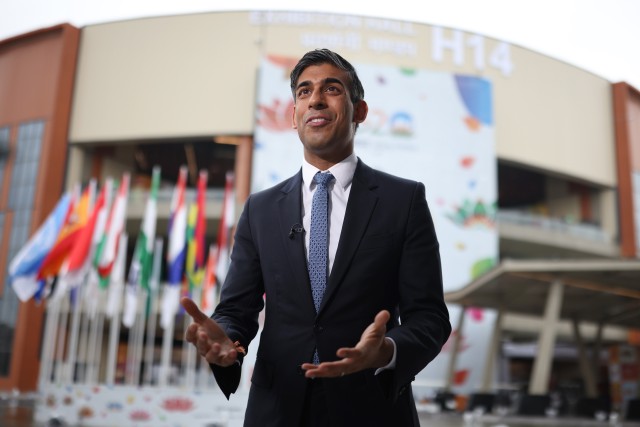Chancellor Rishi Sunak has cautioned against imposing burdensome policies on Brits in the pursuit of achieving Net Zero emissions. In a speech at the G20 summit in New Delhi, Sunak emphasized that families should not be burdened with higher bills during the transition to a green economy. However, he maintained that the commitment to achieve Net Zero by 2050 must be upheld, as it has the potential to create jobs and stimulate economic growth.
Boosting Jobs and Growth without Sacrificing Quality of Life
Sunak expressed his belief that the path to Net Zero should not involve sacrificing comfort and increasing costs for UK citizens. He stated, "The Net Zero story for me shouldn't be a hairshirt story of giving everything up and your bills going up. That's not the vision of Net Zero that I think is the right one for the UK." He further added that any measures taken should be pragmatic, proportionate, and mindful of the impact on families, particularly during a period of higher inflation.
Green Policies Scrapped after Public Outcry
Sunak has already reversed several unpopular green policies following backlash from the public, who were already grappling with the rising cost of living. Plans to impose hydrogen levies on energy bills and the expansion of the Ulez anti-driver charge in London, introduced by Mayor Sadiq Khan, have been discarded. Additionally, EU regulations that hindered the construction of new homes are also being removed.
Pressure to Go Further
Despite these changes, Sunak is facing demands from some of his own Conservative Party MPs to go even further. They are urging him to postpone the 2030 ban on new petrol and diesel cars and scrap the plan to ban gas boilers in new buildings by 2025. However, left-wing MPs within the party have warned Sunak against abandoning green policies.
Supporting the Green Agenda
While Sunak has expressed caution about imposing excessive costs on citizens, he has faced criticism for allocating a staggering £1.6 billion in international climate change aid at the G20 summit in India. Moreover, he defended providing financial assistance to wealthy India, arguing that aid to the country benefits British businesses.








